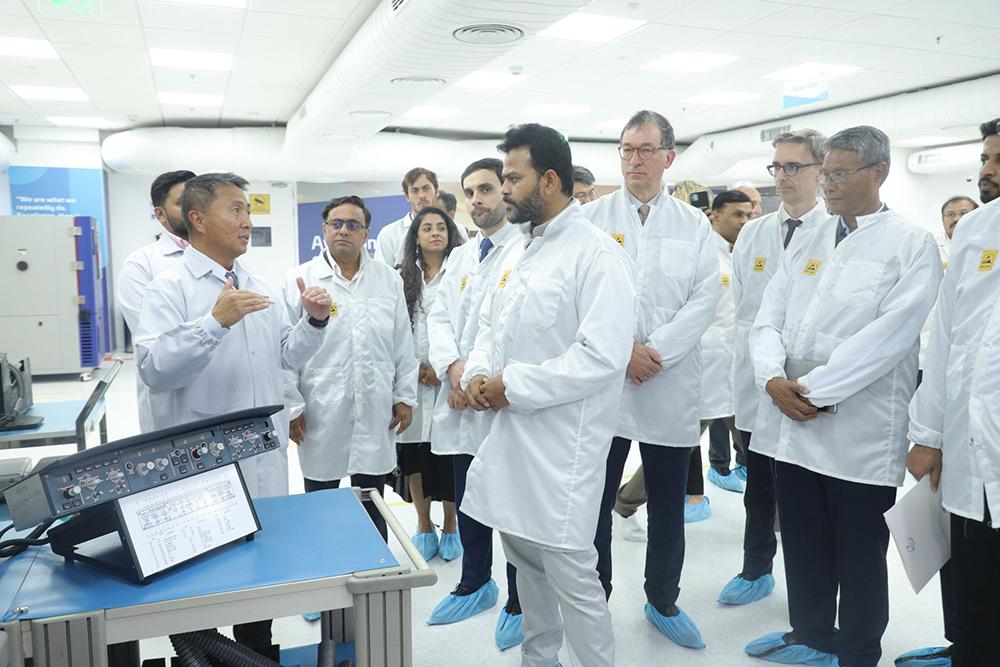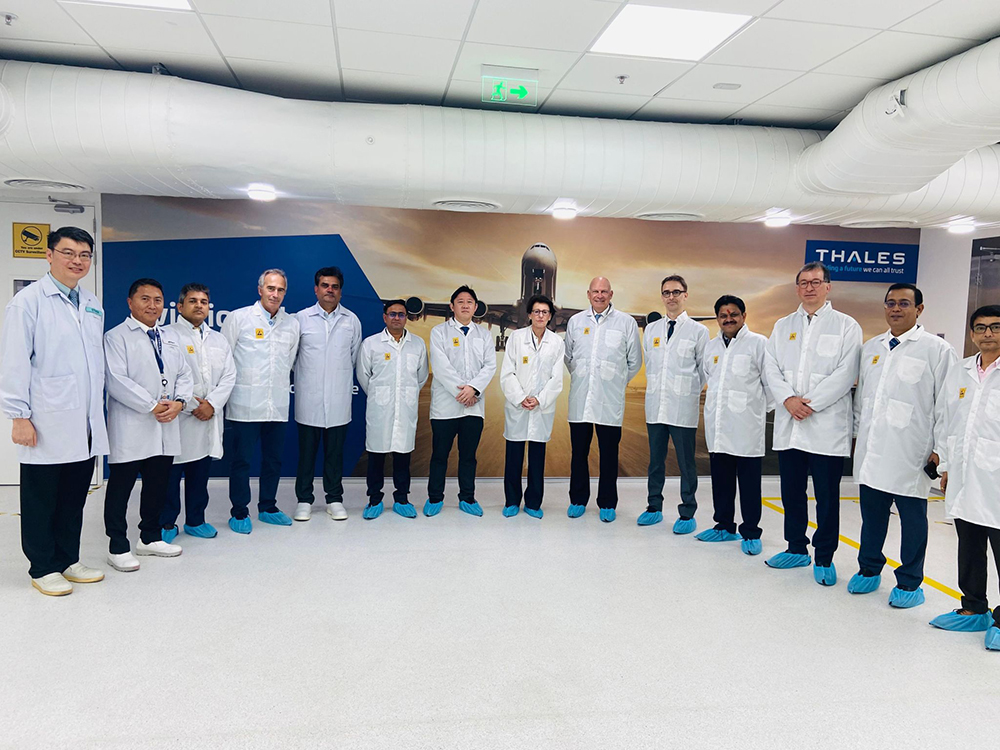
Thales recently inaugurated its new avionics MRO facility in Gurugram, India, near Indira Gandhi International Airport. Aligned with the country’s ‘self-reliant India’ vision, the facility will provide a wide range of services, including maintenance and repair of avionics components, to domestic carriers such as Air India and IndiGo.
Thomas Got, Thales’ vice president of aviation global services, notes that the facility is part of the company’s efforts to localize technological and avionics repair expertise closer to airline customers. “The Gurugram center is backed by the power of a global support and services organization and aligns with Thales’ strategy to expand its presence in India,” he says.
Air India is on track to operate one of the most modern and tech-forward fleets in the world following its 2023 order for 470 Airbus and Boeing aircraft. Its new Boeing 787s and 777s will be equipped with next-gen cockpit displays, advanced flight management systems and digital navigation suites. Similarly, its Airbus A350s and A320neos have the latest avionics suites, such as Honeywell Primus Epic, and Airbus’ Skywise platform for predictive maintenance.
Low-cost carrier IndiGo, which has more than 1,000 aircraft on order, is one of the world’s largest A320 operators, and its large fleet size will also generate avionics demand. The airline is adopting state-of-the-art navigation, communication and terrain awareness systems across its narrowbody fleet and it is exploring predictive maintenance tools to reduce downtime and streamline turnarounds. Considering its focus on cost and operational reliability, IndiGo is likely to outsource avionics support to certified Indian MROs with rapid response capabilities.
These aircraft will drive requirements for avionics services, creating an opportunity for Indian MRO providers to localize avionics software updates, repairs and component testing.

The Gurugram facility will support a wide array of civil and military avionics systems, including flight management systems, cockpit displays, navigation equipment and surveillance components.
In addition to its maintenance and repair capabilities, the facility will focus on knowledge transfer, training local talent and building an end-to-end support ecosystem in India. The demand for trained avionics engineers and technicians in India is projected to surge dramatically, especially with India’s commercial fleet expected to double by 2030 and defense aviation modernizing rapidly.
Avionics is a highly technical and precision-driven area, and while India has the talent, it needs structured training and certification programs tailored specifically to MRO. India’s push for self-reliance has highlighted a critical gap in indigenous avionics capabilities. Although the country manufactures certain airframe and engine components, its avionics segment remains heavily import-reliant, leading to higher life-cycle costs and downtime.
OEM-backed MROs such as Thales’ new facility present an opportunity to bridge this gap. By anchoring global technology and training in India, they could reduce dependence on foreign facilities and pave the way for a homegrown avionics repair ecosystem.
According to estimates by India’s Directorate General of Civil Aviation (DGCA), over 10,000 avionics units—ranging from basic flight data recorders to sophisticated radar altimeters—will need routine inspection, maintenance and repair in India annually by 2028. Yet less than 30% of that volume is currently handled domestically.
Together, Air India and IndiGo are expected to operate over 1,500 aircraft by 2035. The potential volume of avionics checks, upgrades, troubleshooting and software updates will create demand for high-throughput avionics testing labs; local OEM-certified engineers; and pressure on DGCA and India’s Ministry of Civil Aviation to simplify avionics certification and tooling import regulations.
THE ROAD AHEAD
The future for avionics MRO in India looks promising but coordinated action is still needed. Recent policy changes have set the tone, including revisions to taxes on spares and tooling and the Protection of Interests in Aircraft Objects Bill, passed April 3, which will make it easier for lessors to repossess aircraft and engines when carriers default on payments. The next phase will require incentives for OEMs to set up repair hubs, streamlined licensing for MRO training schools and public-private partnerships to scale capabilities.
Thales’ continued investment is a model the industry hopes others will follow. Thales plans to expand capability into software-based avionics, artificial intelligence-powered fault diagnostics and even support for electric vertical-take-off-and-landing and electric aircraft platforms.
As India’s aviation market evolves into a power player, avionics MRO will play a decisive role in ensuring safety, efficiency and cost competitiveness. Thales, Honeywell, Collins Aerospace and Indian aerospace and defense companies such as Hindustan Aeronautics Limited and Bharat Electronics will all have key roles to play.





